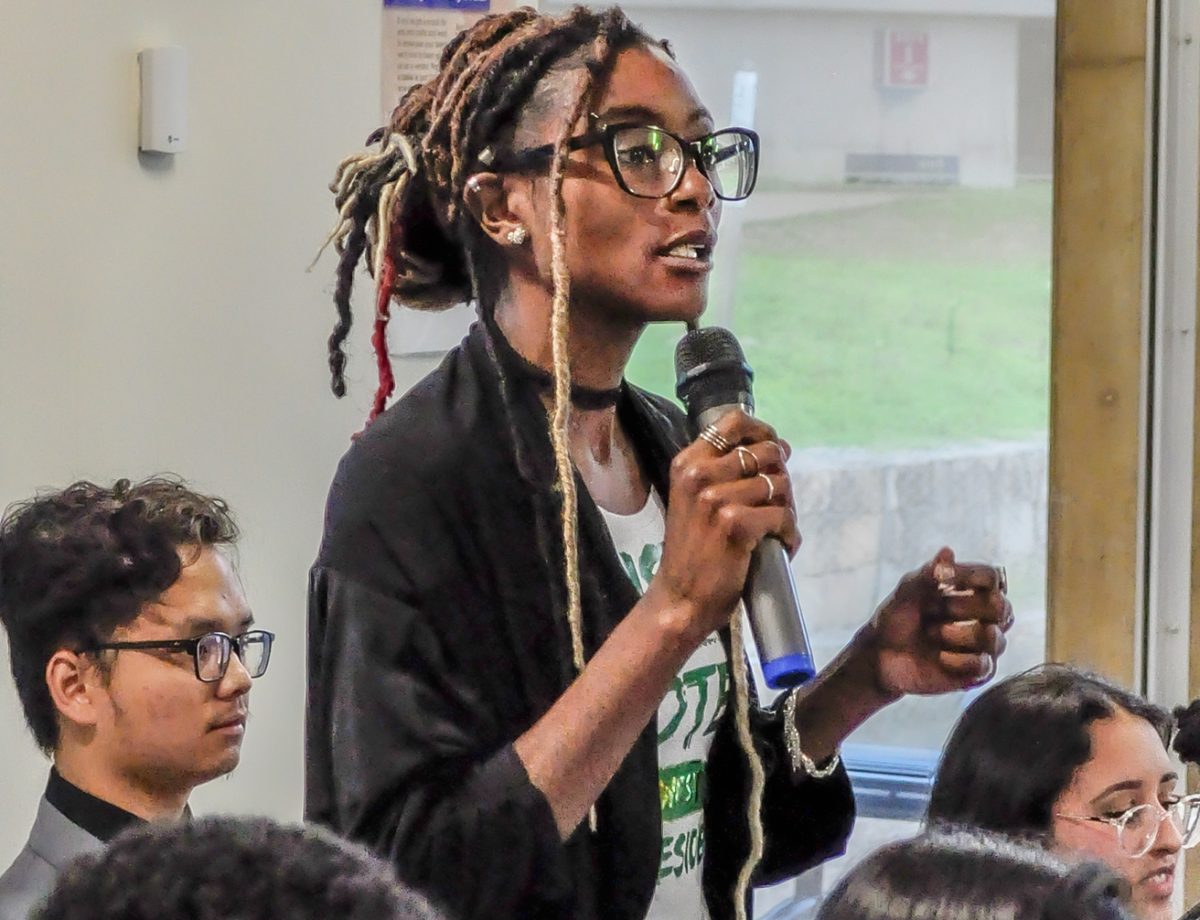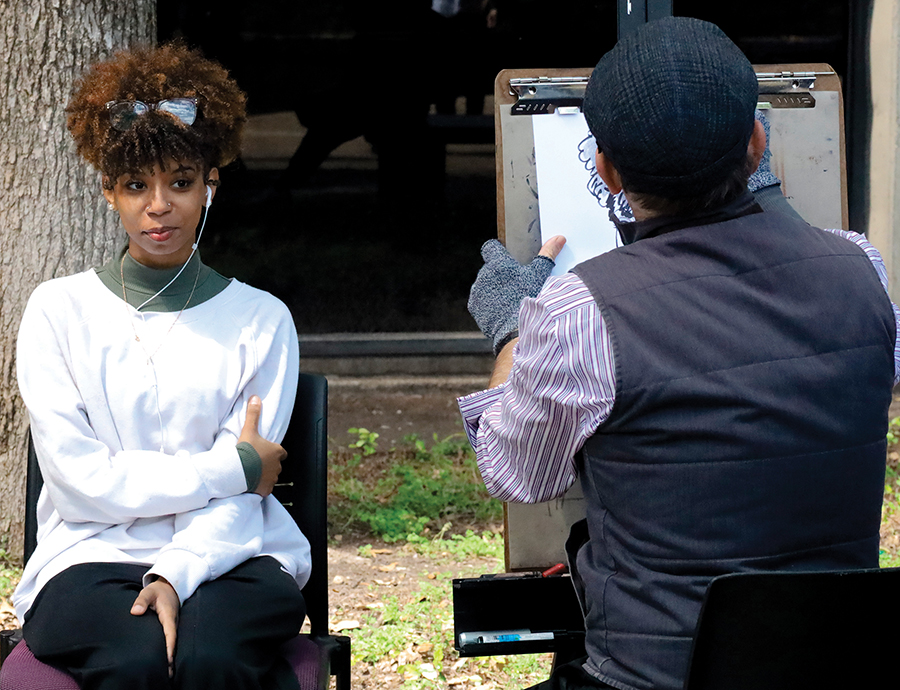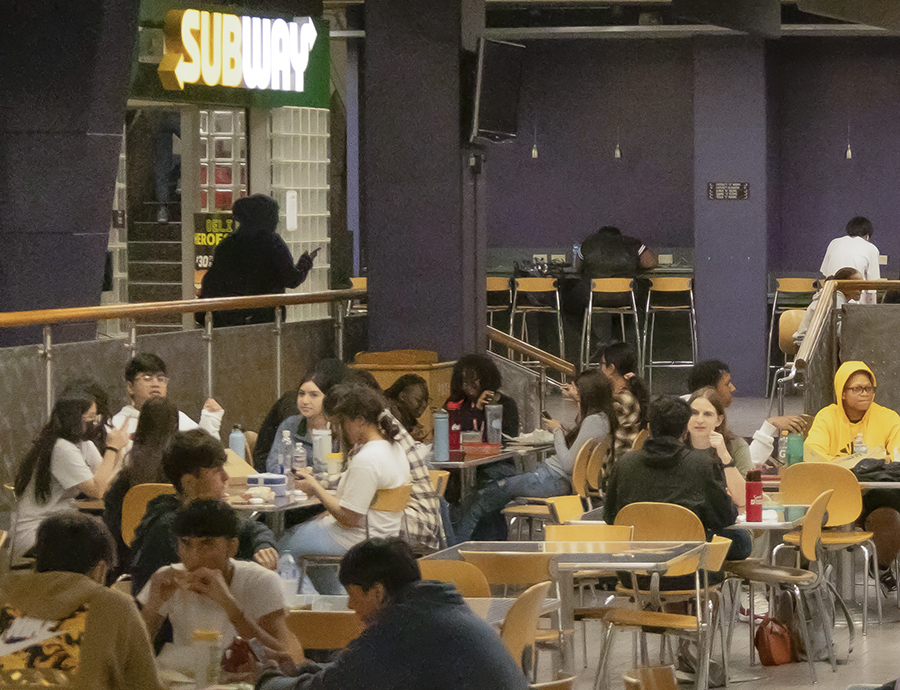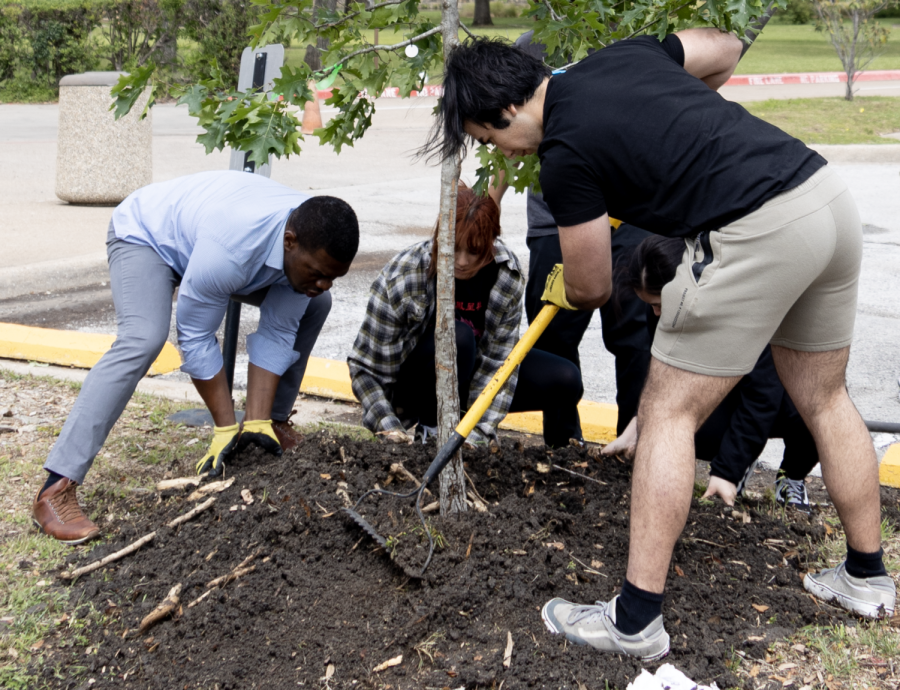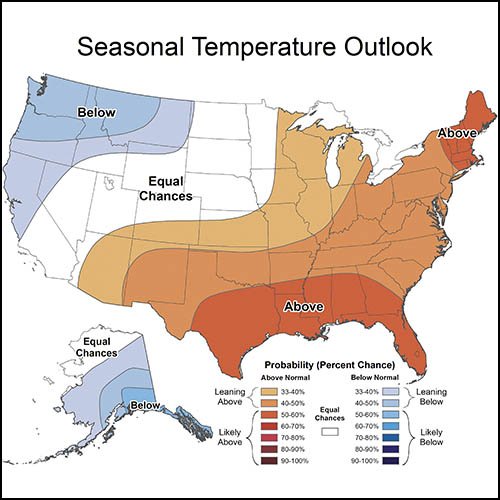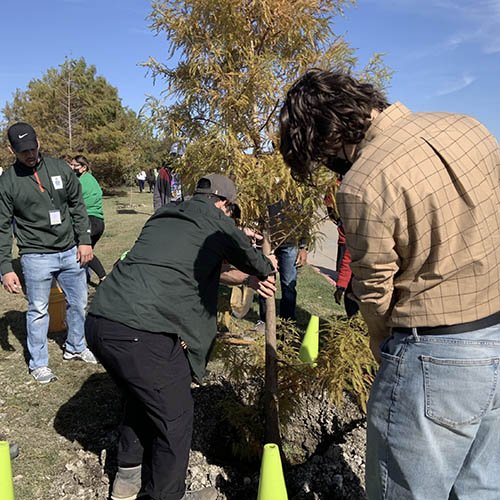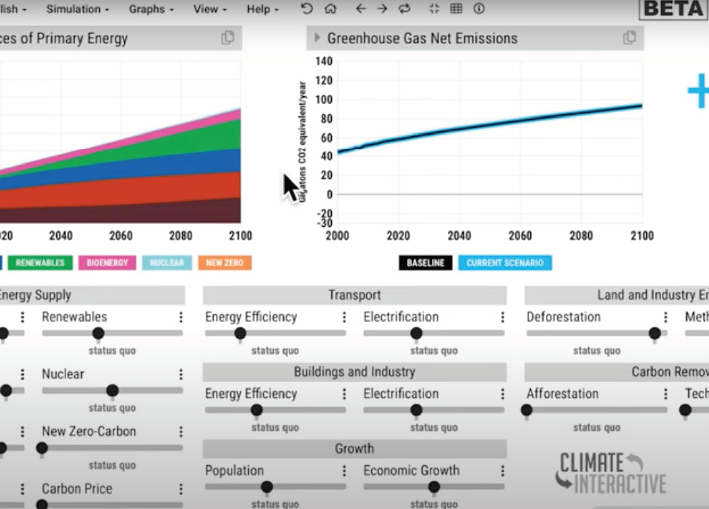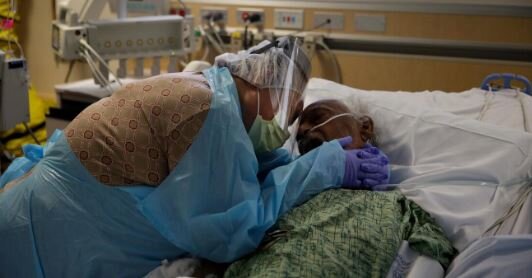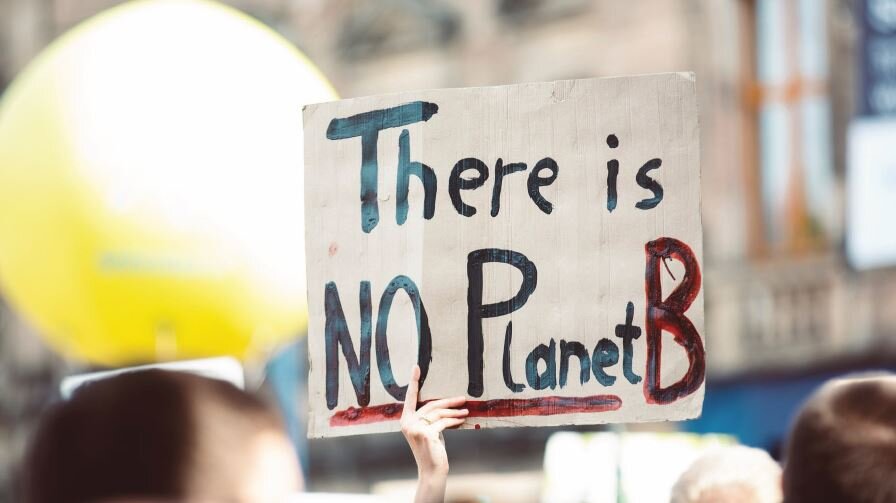Amid COVID-19, major global issues have lost their time in the spotlight – one of which is climate change. The sudden shift to a virtual lifestyle has left some with a sense of frustration and an underlying feeling of existential anxiety.
Richland science professor Stephen Kallenberg said, “[Climate change] is prevalent enough and we’re in a place now where most young people get it. There’s not a question of it not happening.”
Photo Courtesy Kobloh-Obase Kammonke
Kallenberg said the tension created between young people and global leaders, who do not prioritize climate change, has been furthered by Greta Thunberg of Sweden and other rising young activists. It’s a movement he said where people are slowly realizing there isn’t much to do aside from advocating for change.
With the 50th anniversary of Earth Day on April 22, the Earth Day Network (EDN) is raising awareness of the anniversary by selecting an environmental priority to engage the global public. This year the focus is on climate action and building on the legacy of Earth Day.
According to the EDN website, the first Earth Day in 1970 mobilized millions of Americans who took to the streets and launched the modern environmental movement. Kallenberg said things have changed since then.
“We’re already beyond a point,” said Kallenberg. “The world will be different and it will continue to be different.” The solution can only come with government support. Forcing companies to make changes is the best solution, Kallenberg said.
“They don’t let you choose if you get the plastic bag or not. You get the plastic bag. You get the paper wrapping. All of these things that really aren›t necessary,” Kallenberg said. For now, the changes needed to make progress are highly improbable, he said.
The EDN established objectives for global citizens. One of which is the Great Global Cleanup.
Despite COVID-19, EDN plans to make a difference while complying with state and local shelter-in-place orders. The project to remove “billions of pieces of litter from our environment and to build a clean and healthy future for all people” will continue, according to the EDN.
The statement, released on March 20, said “Many cleanups are expected to be rescheduled in early fall in coordination with World Cleanup Day” and other national events.
Along with the concern for time, the focus of climate action has shifted to how major media outlets are handling the issue.
“Depending on what’s on the news, I may find more students this semester are asking about fire,” he said. “Global warming has been [a student concern] for a little while,” Kallenberg said, adding that the wildfires in Australia and California prompted interest in his classes along with volcanic eruptions around the globe earlier this year.
Kallenberg said one way to make students care is to show the impact on animals.
“That’s a very easy way to get everyone involved or interested,” he said. “Awareness is good. That’s where social media really goes into play.”
Whether it be for climate refugees, wildlife or preservation of ecosystems, Kallenberg said the miniscule effort for activism is to spread the news. He said he didn’t find the events to be overblown.
“The reason why it’s such a big deal in Australia is because of social media.” Now is the time to figure out how to mobilize people instead of talking about it, he added.
“It’s a very, very slow change. When really, the curve of climate change has to be very fast,” said Kallenberg. The fact that so many natural events have happened this year also caused unease. It’s something Kallenberg strongly believes is a coincidence.
Staff Cartoon Jerry Weiss
“There’s no real science behind it yet,” he said. Though there may be minor ways climate change can affect something like earthquakes, ocean levels or volcanoes, Kallenberg said science has yet to prove it.
“I am [hopeful] that we can adapt,” said Kallenberg. “Not without some pains.”
In his classes, Kallenberg encourages students to ask anything.
“It doesn’t matter. As long as it’s a question that is of the physical world, so to speak, they can ask it.”
Knowing what is going on is the best way to confront the changes. Kallenberg said, “For [now], that’s the best thing we can do.”
Additional information about Earth Day is available at www.EarthDay.org.

